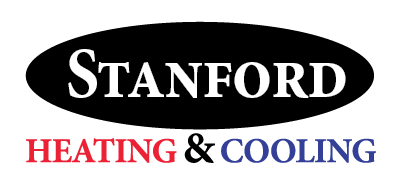
We can all benefit from saving money from time to time. One of the easiest ways to do this is by making some energy-efficient changes around your home. Upgrading your HVAC system or adding a smart thermostat, for example, provides more control over your heating and cooling system, resulting in a more energy-efficient home and more affordable monthly energy bills.
Keep reading to learn more about 4 ways you can make energy-efficient home improvements.
1. Try a Smart Thermostat
If you still use an older thermostat and access it manually, try taking a step toward the future by installing a smart, or Wi-Fi, thermostat – which comes with a number of features to improve your home's energy efficiency.
The function homeowners enjoy the most is being able to control their smart thermostats from anywhere they want with their smartphone or other smart device. For example, if you forget to use your thermostat before leaving for vacation, you can easily take out your smartphone and make the necessary adjustment.
Similar to a programmable thermostat, a smart thermostat allows you to set up a schedule for your home’s temperature based on the time of day and day of the week so you’re not cooling or heating an empty house. Smart thermostats also have the ability to learn your temperature preferences over time and automatically make energy-efficient corrections. They can even provide monthly energy reports that demonstrate how much energy you’re using and when so you can make modifications to reduce costs.
If you’re wondering how to get a free smart thermostat, ask your utility company to learn if there are any discounts or free smart thermostats offered.
2. HVAC Tune Ups
Unfortunately, lots of homeowners often forget about having their heating and cooling systems maintained. While this may not seem important, a lack of maintenance could produce a number of issues, including inefficiency, breakdowns, and a shorter system lifespan.
During an HVAC maintenance service, a heating and cooling technician should examine your HVAC system, clean important components, and pinpoint minor issues before they produce bigger, more expensive repair issues. Tune ups keep HVAC systems running in optimal condition, which means less energy is needed to heat and cool your home. This could also reduce your energy bills, expand the lifespan of HVAC equipment, and contribute to fewer repairs.
We encourage two HVAC tune ups every year – one in the spring before summer and one during the fall before the arrival of winter weather.
3. Upgrading Your Old, Inefficient HVAC Equipment
Annoyingly, like all appliances, HVAC systems have a shelf life and ultimately need to be replaced. Newer heaters and cooling equipment is much more energy efficient than models manufactured just over a decade ago. Luckily, local HVAC companies like Stanford Heating & Cooling can offer professional services such as furnace installation in Bloomfield.
Well-maintained furnaces and air conditioners can live around 15-20 years. If your systems are within that span, it might be a good idea to replace them now to prevent untimely breakdowns that can leave you cold and uncomfortable on a cold winter night. If your system is approaching 15 years old and needs an expensive repair, it’s usually time to replace the system. Per the U.S. Department of Energy, installing a new HVAC system could save you approximately 20-40% on your monthly energy bills, so you’ll recoup some of the costs of installing a new system.
A professional comfort technician can help you identify the most energy efficient HVAC system available. In general, look for HVAC systems that are Energy Star certified, which means the equipment satisfies firm guidelines established by the U.S. Environmental Protection Agency. LENNOX HVAC systems are some of the most efficient systems on the market, featuring both high AFUE and SEER ratings. AFUE is intended for heating systems and illustrates how well they convert fuel to heat. SEER, meanwhile, is used to quantify the energy efficiency of cooling systems.
Contact a reputable HVAC provider like Stanford Heating & Cooling for air conditioning installation in Bloomfield.
4. Use High Efficiency Air Filters
If you’re looking for new HVAC filters, keep in mind that not all air filters are capable of providing the same results. Specific air filters are far more efficient than others, resulting in lower energy bills and a cleaner home environment.
The efficiency of HVAC air filters is scored by their Minimum Efficiency Reporting Value, or MERV rating. The MERV scale ranges from 1-20; the higher the number, the more effective the filters are. It’s relevant to note, however, that high-efficiency air filters can actually restrict airflow too much according to the type of HVAC system you own. It’s important to read the owner’s manual before purchasing a filter to determine the right one for your system.

